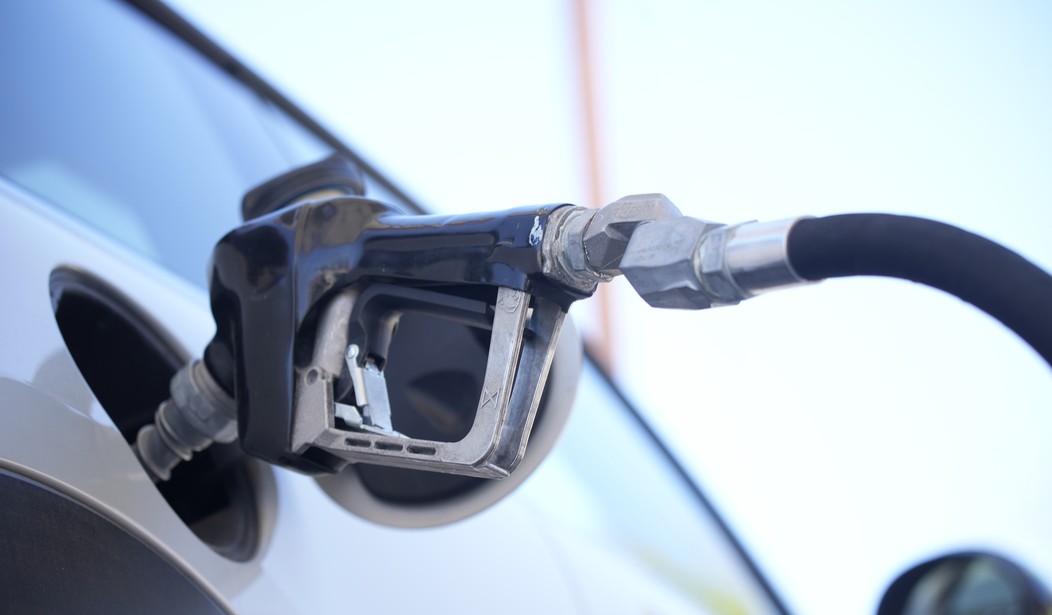Democrats’ desperate attempts to solve the energy crisis are falling short.
As gasoline prices have surged over the past year and supply has remained low, both the White House and Congress have put forth a myriad of proposals to tackle high costs at the pump – all to little or no avail. Instead of applying tax-and-subsidize policies to the energy sector, policymakers should focus on actually increasing production in order to ease Americans’ pain at the pump.
Democrats have responded with their massive “Inflation Reduction Act” (IRA), a legislative misnomer that will do nothing to reduce the short-term effects of inflation and may have minimal long-term impact. The price tag on the energy sector for this proposal: upwards of $25 billion in new taxes. The legislation would reinstate and increase a long-lapsed tax on crude and imported petroleum products to 16.4 cents per gallon, according to a summary released by the Senate’s tax-writing committee. That means bigger burdens passed along to the average consumer.
Last month President Biden visited Saudi Arabia, where he attempted to walk a delicate line between demonstrating American energy independence while encouraging the Organization of the Petroleum Exporting Countries (OPEC) to increase the supply of oil into the global market. Since that trip OPEC has agreed to increase oil output by 100,000 barrels per day. To put this into perspective, the United States in 2021 used 19.78 millionbarrels per day. OPEC’s release is a drop in a very large bucket.
Meanwhile, here at home, a tried-and-failed tax policy from the 1980s is once again being offered as a solution to our modern day energy woes. Legislation introduced by Sen. Sheldon Whitehouse (D-RI) and Rep. Ro Khanna (D-CA) seeks to tax so-called “windfall” profits of oil and gas producers, both domestically and internationally. This proposal would slap a per-barrel levy equal to 50 percent of difference between the current standard price of crude oil and the average price from 2015 to 2019 (inflation adjusted after 2022). The tax would be imposed on both domestic production and imports, and would largely be limited to firms that produced or imported an average of at least 300,000 barrels per day in 2019.
Recommended
Similar legislation introduced by Sen. Ron Wyden (D-OR), the Taxing Big Oil Profits Act, would double excess-profit taxes on oil companies making over $1 billion a year. The legislation would impose a 21 percent tax on the excess profits of oil and gas companies making more than $1 billion annually. Although not specifically called a “windfall” tax, Sen Wyden’s bill would have an identical effect.
The last U.S. windfall profits tax took effect in 1980 and was repealed in 1988 after leaders on both sides of the aisle acknowledged that it reduced domestic oil production and made America more dependent on foreign sources. But now, Congressional Democrats are making the claim that energy producers are benefiting too much from the market conditions and that the proceeds of the “windfall” profits tax should be returned to taxpayers in the form of a rebate.
The Democrats’ mistake is thinking that disturbing the supply of oil being produced and imported to the U.S. is worth the estimated yearly rebate, which would total just $240 for single filers and $360 for joint filers, according to a report by the Congressional Research Service. This would hardly put a dent in the inflation most Americans are experiencing. Consumer prices from January 2021 to June 2022 rose 13.3 percent, costing the average American household $635 per month. According to the Joint Economic Committee, even if inflation settles down, the inflation that has alreadytaken place will cost the average household $8,616 over the next year.
Now is not the time to be recklessly increasing spending or raising taxes on U.S. energy producers that employ at least tens of thousands of Americans – jobs that support hundreds of thousands more in the supply chain. Policies like the Big Oil Windfall Profits Tax Act and the ironically named Inflation Reduction Act will increase the cost of doing businesses for some of America’s biggest employers, and will likely have a negative impact on wages at a time when rampant inflation is making nearly everything difficult to afford.
Instead, Congress and the administration should consider alternative policies that can mitigate increased energy prices over the long term. This could include identifying and developing energy resources on federal lands, approving responsible exploration and production by the private sector, and supporting sustainable and expedited permitting.
The Biden administration has openedfederal land for drilling, but at a historic low rate in terms of acres while also requiring historically high royalties. Better calibrating these policies to the benefit of consumers and taxpayers while still respecting the environment should be a priority.
Congressional leaders, for their part, could look at legislation to reduce barriers that block the development of and access to new supply. This includes restoring the Keystone XL pipeline which could have provided 510,000 barrels per day, or the ConocoPhillips Alaska oil drilling project that could produce up to 629 million barrels of oil over 30 years.
Recently, a coalition of 26 consumer groups, think tanks, and taxpayer advocacy organizations urged Washington leaders to steer away from a windfall profits tax and other stale policies that have already failed in the marketplace of ideas. As the joint letter put it, “making progress on the oil and gas crisis is possible if Congress and the Biden administration focus their efforts on increasing supply rather than raising taxes.” This sound advice is needed – and ought to be heeded – now more than ever.
Alex Milliken is a Policy and Government Affairs Manager at the National Taxpayers Union.

























Join the conversation as a VIP Member